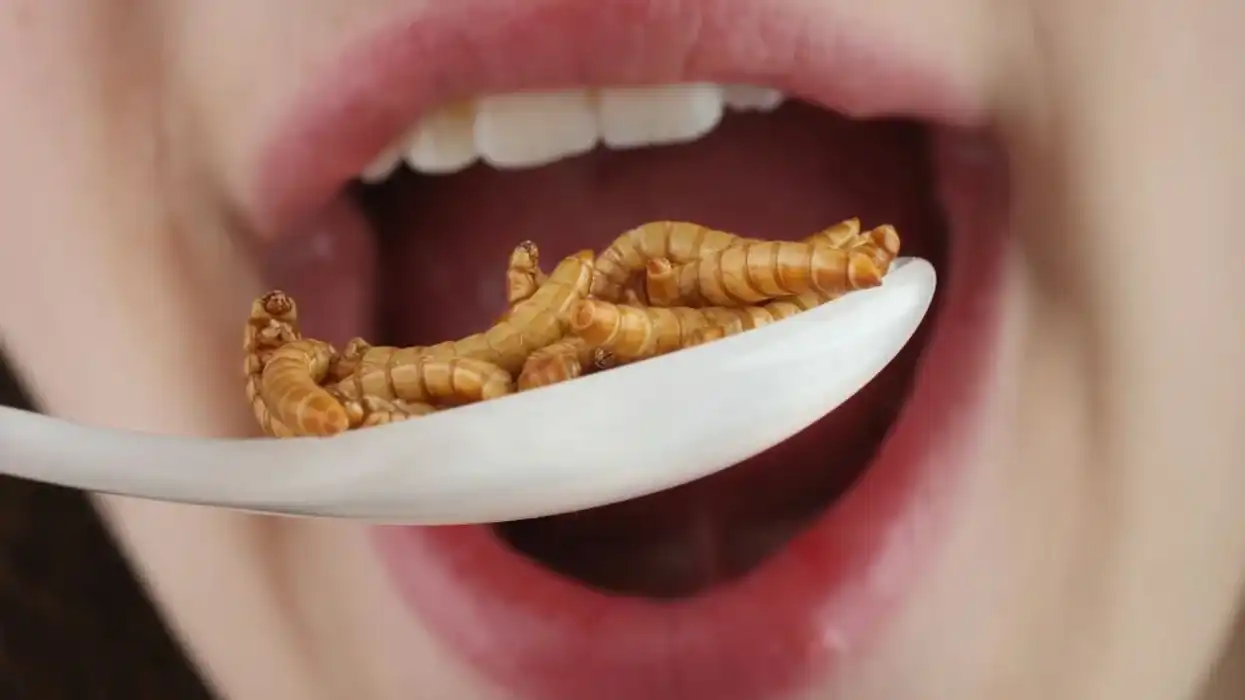
Photo Illustraiton by Sean Gallup/Getty Images

NPR's race-obsessed and taxpayer-subsidized show "Code Switch" recently peddled the notion that it is conspiratorial thinking to take proponents of the bug-food movement at their word.
What's more, host Gene Demby's guest on the July 19 episode, entitled "This right wing conspiracy theory about eating bugs is about as racist as you think," has intimated that criticism both of bug food and of those technocrats who seek to alter consumer behavior may be racist.
NPR has since been met with ridicule by those aware that the desire to supplement or replace normal food with bugs is not a conspiracy theory but rather a real initiative with substantial momentum, which has been long detailed and defended in academic journals, trusted publications, and even on NPR.
NPR reporter Huo Jingnan joined "Code Switch" host Gene Demby on last week's episode to regurgitate talking points from his April NPR article, wherein he simultaneously held that the claim that "elites want people to eat bugs" was a right-wing conspiracy theory while also acknowledging the inclusion of bugs in human food was "an emerging, but still marginal, idea among climate scientists and food security experts."
"For those who espouse the theory, eating bugs isn't just a matter of disgust, or questioning the impacts of climate change," wrote Jingnan, an admitted fan of eating silkworms. "It's framed as a matter of individual freedom and government control."
Jingnan hinted both in his article and on Demby's show there must also be a racial component to the growing concerns about the bug-food movement and the motivations driving it.
After tying bug-food aversion to right-wing resistance to the Great Reset, the NPR reporter suggested that possible "anti-Semitic tropes" might be at play. Allowing himself "a little bit of a stretch," he argued by way of broken syllogism that bug-food critics might also share something in common with identitarian exponents of the Great Replacement theory.
In case those smears might not stick, Jingnan indicated that an aversion to bugs might also be demonstrative of a through-line between conservatives and "colonizers" who allegedly took pause at tribal people's consumption of creepy crawlers.
The NPR reporter further claimed that Tucker Carlson, the Daily Wire's Michael Knowles, Alex Jones, and others have been trafficking in such "dog whistle[s]" when discussing their opposition to the prospect of eating bugs and that those with whom this so-called conspiracy theory resonates are likely "unvaccinated, male, conservative, Trump-voting, Republican and also not college-educated."
While Demby appeared keen to write off the bug-food movement as "not that big a deal," and Jingnan intimated that it might just the MAGA crowd who are paying attention, critics have pointed that NPR's publication history suggests otherwise.
Here are the titles of just a few NPR features in recent months and years:
Stephen Miller, contributing editor at the Spectator, asked, "Does anyone at NPR read or listen to NPR?"
American author Michael Shellenberger said of Jingnan's April article, "These articles all begin with smearing people who are upset about something (e.g. bug-eating, puberty blockers for autistic kids, gas stove bans, etc) as conspiracy theorists, and end with the promotion of the thing people are upset about. The gaslighting is breathtaking."
Shellenberger added, "We must understand that media elites are using the words 'conspiracy theory,' 'disinformation,' and 'misinformation' as ways to control thought and demonize and censor people raising legitimate concerns about the crap policies and programs they want to impose on us."
Twitter user End Wokeness wrote, "The propaganda is getting lazy."
Whereas the NPR duo suggested there is not a campaign by elites to supplement or replace Western diets with insects and insect byproducts:
Like Blaze News? Bypass the censors, sign up for our newsletters, and get stories like this direct to your inbox. Sign up here!